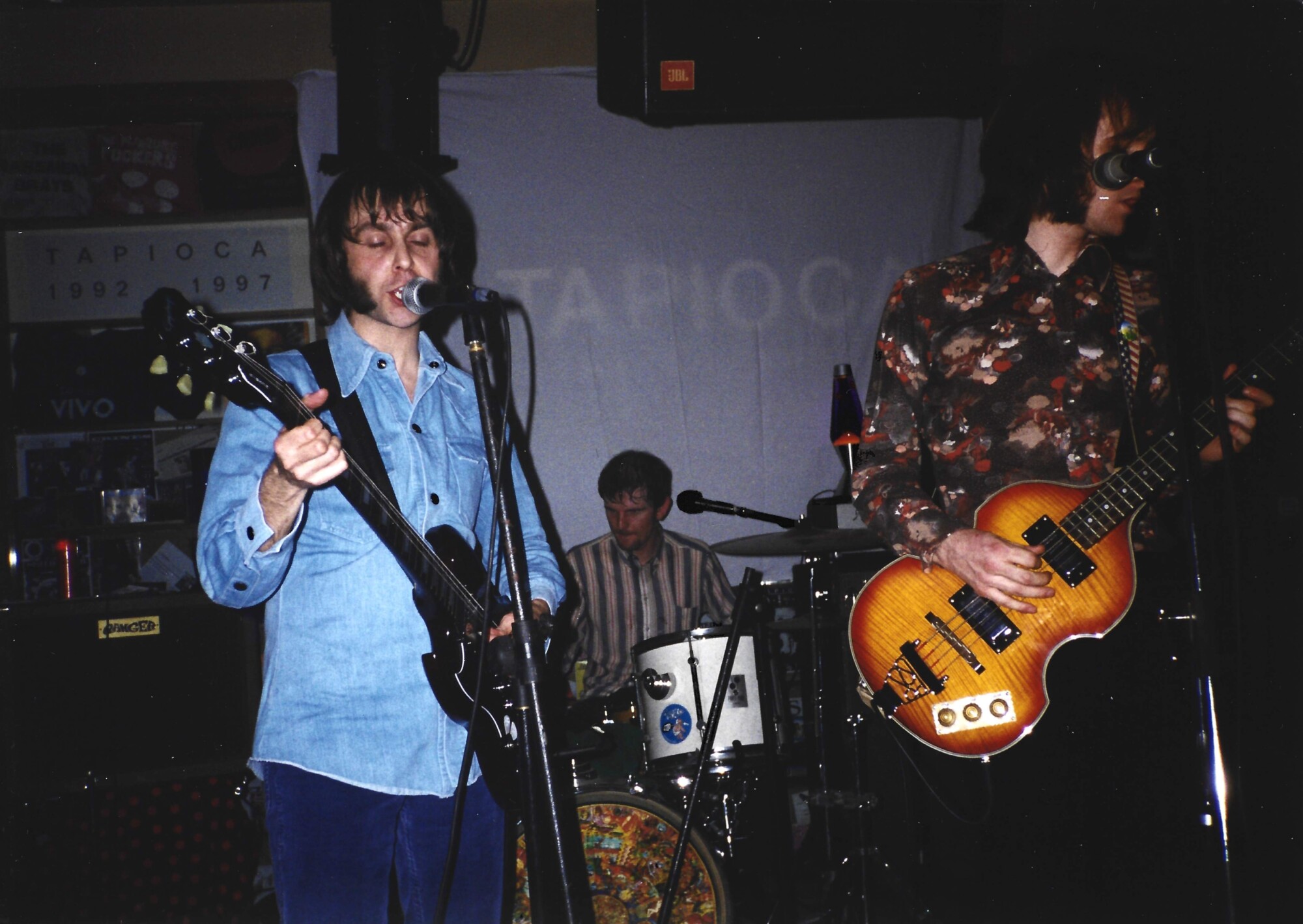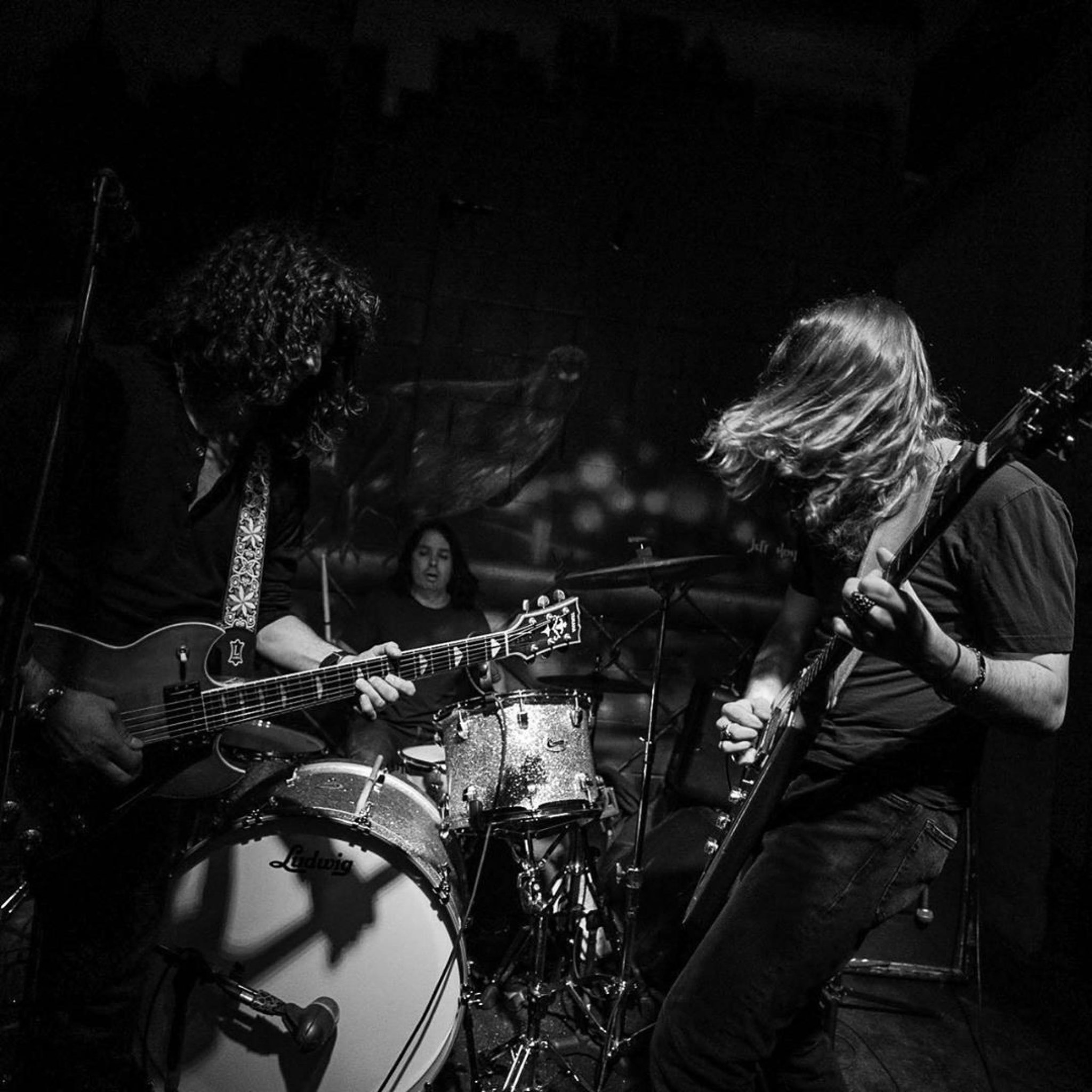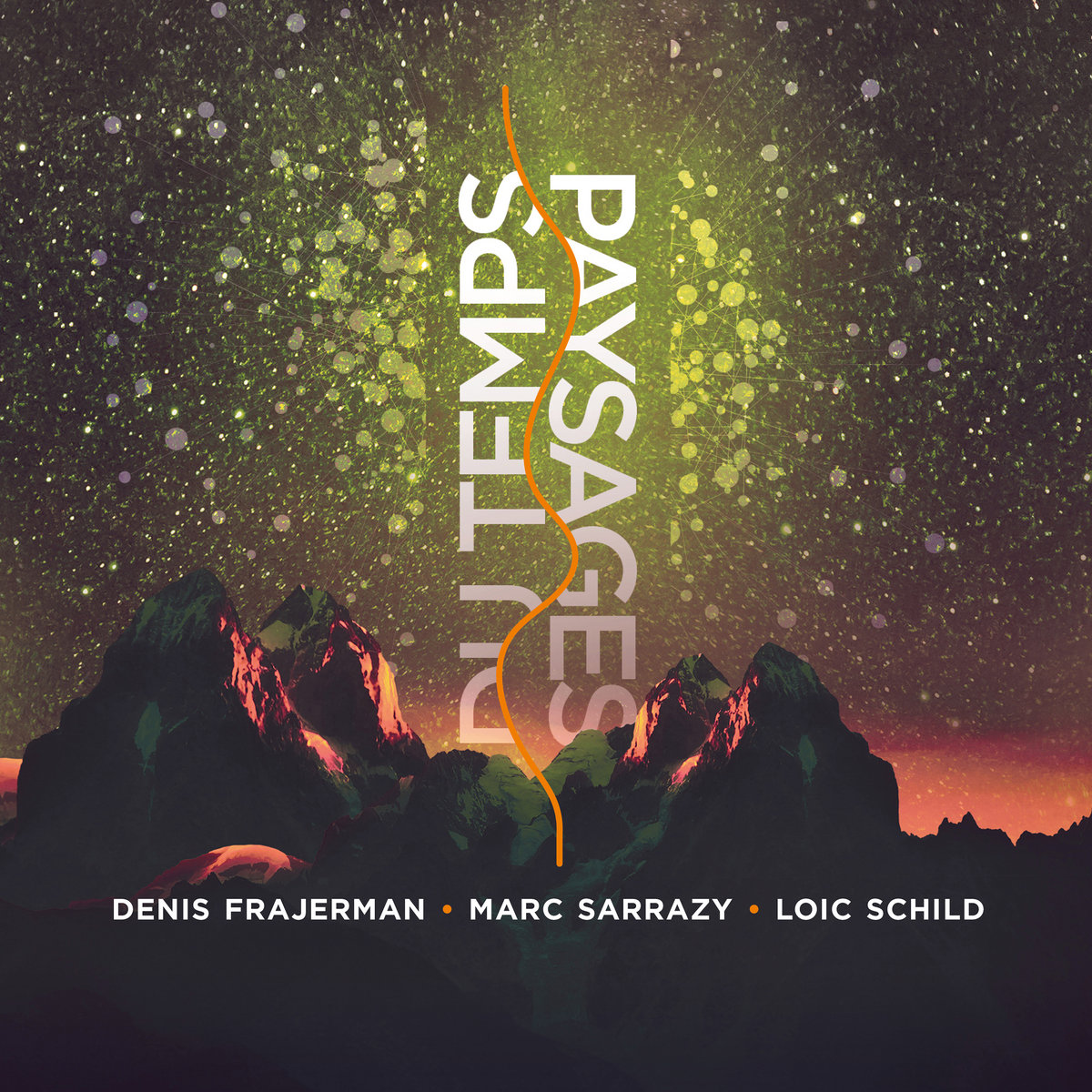Bronco Bullfrog | Interview | “We’re all Who obsessives”
Emerging from the echoes of ‘60s nostalgia and driven by a deep love for retro rock, Bronco Bullfrog carved out a unique niche in the scene with their electrifying blend of pop, psych, and power-pop influences.
The Nerve laid the groundwork for Bronco Bullfrog with their retro-inspired sound, a tribute to the wild side of the ‘60s and bands like The Prisoners. Their journey began with covers before evolving into original songs, a transition marked by their passionate live performances and the challenge of capturing their dynamic sound in the studio. Following the disbandment of The Nerve, Andy Morten’s songwriting and recording experiments with Mike Poulson and Louis Wiggett blossomed into Bronco Bullfrog. The band’s debut album came to fruition when Twist Records approached Louis, who had recently joined Andy and Mike, leading to a fortuitous start in the music scene. The debut release of Bronco Bullfrog was heavily influenced by their admiration for The Who, using their signature sound as a foundation to mix in their unique harmonies and elements from various pop and psych genres. This homage to The Who was evident in their raw, electrifying sound that defined their early work. The recording process for their second album, ‘seventhirtyeight,’ was marked by a series of disjointed sessions, reflecting the band’s personal struggles but ultimately resulting in a powerful and eclectic collection of songs. This piecemeal approach, driven by the band’s changing dynamics and external pressures, gave the album its distinct character. Recording at Toe Rag Studios for ‘The Sidelong Glances Of A Pigeon Kicker’ allowed Bronco Bullfrog to harness the power of vintage equipment, capturing their authentic ‘60s sound with an old-school approach that defined the album’s feel. The final album, ‘Oak Apple Day,’ was a showcase of Bronco Bullfrog’s evolution, blending 60s and 70s influences into a cohesive set of brilliant pop songs, despite the challenges and tensions faced during its creation. With Guerssen’s recent reissue of their albums, Bronco Bullfrog’s music is reaching new audiences, allowing both old and new fans to rediscover the band’s distinctive sound and historical significance. Beyond Bronco Bullfrog, Louis’s musical journey includes projects like Admiral Sir Cloudesley Shovell and The Bevis Frond. As Bronco Bullfrog continues to inspire through their reissues and ongoing musical influence, their legacy remains a vibrant part of the neo 60s music landscape.
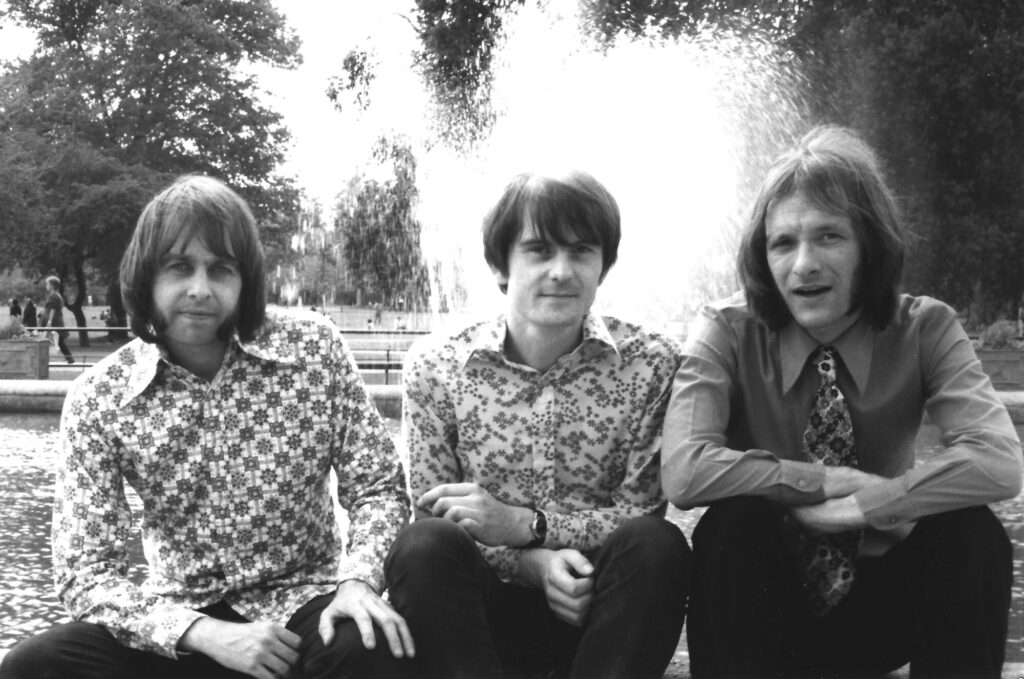
“We’re all Who obsessives”
Would you love to talk a bit about your background and what led you to pick an instrument?
Louis: I always considered myself a guitarist, I played guitar in Vibraphone (with Andy) and then picked up the bass initially to help Johnny (Gorilla/Admiral Sir CloudesleyShovell) with his then longstanding project The Morticians; which was a lot of fun. It was only when Andy and Mike asked me to join a band they were putting together that I realised I was set to become a bass player for life. I still have a guitar, and I still pick it up occasionally. So, basically I was press-ganged into bass.
Andy: I told my mate that I could play the drums so I could join his band when I was 15. He was younger than me but had a crappy Fender Strat copy and his favourite band was The Kinks. I’d never so much as touched a drumstick in my life. I bought a nice old Premier kit for £100 on HP and had to freeze-frame Keith Moon playing on some ’60s TV show in The Kids Are Alright because I didn’t know how to set the drums up. Somehow, I passed the audition. I still don’t know how to set drums up properly!
Tell us about the very early days when you began playing with bands.
Louis: I was in a band (on guitar) called Thee Wylde Things (and later became The Beatpack). I was 15 and played my first gig at The Crypt in Hastings, and my second (about a week later) at The Garage Club, downstairs at the Hammersmith Clarendon. At 15, and from a small town on the south coast, it’s an eye opener. Before I knew it the band was playing the Brighton Festival, supporting Gaye Bykers On Acid, Pop Will Eat Itself et al, and generally having a good time.
Andy: Covers bands with friends, finding like-minded souls, ripping off bands that we liked, playing in pubs and clubs in the middle of nowhere, eventually settling into some kind of framework and finding an identity of our own. It wasn’t until The Nerve that I felt like we had a band that was cool and could write, sing and play. And people actually came to see us.
Looking back at your career, you have been part of so many different bands. Let’s first focus on Bronco Bullfrog. What led you to form this band? What would you say was the main idea behind it?
Andy: After The Nerve broke up I started writing profusely. I have tapes from that period and there are dozens of songs that never even made it to the rehearsal room. Mike and I were recording demos, playing around with instruments and layering our harmonies on a customised karaoke machine in his spare room (The Purple Room). Naturally, we wanted to be in a band so we could play all these songs that were pouring out. We invited Louis to join us as we’d been hanging out with him for a few years by this point and dug his personality, musicianship, humour and exquisite taste in music and clothes. There was never any idea behind Bronco Bullfrog – it really was just three 20-something lads who were absorbing all sorts of music, living our lives for shits and giggles, and letting it all play out in the music without us questioning it too much. That liberation from being in “a garage band” or “a psych band” was vital – we could fantasise about being The Raspberries, The Zombies, Poco and Barry Ryan… sometimes in one song!
Your debut album, ‘Bronco Bullfrog,’ and the follow-up, ‘seventhirtyeight,’ were released on Twist Records. How did that come about?
Louis: Twist called me one day, asking if Vibraphone would be interested in recording an album for them. But since Vibraphone had already imploded and I’d joined Andy and Mike in Bronco Bullfrog, I pitched the new band to Mark, and he said yes. It was really that simple.
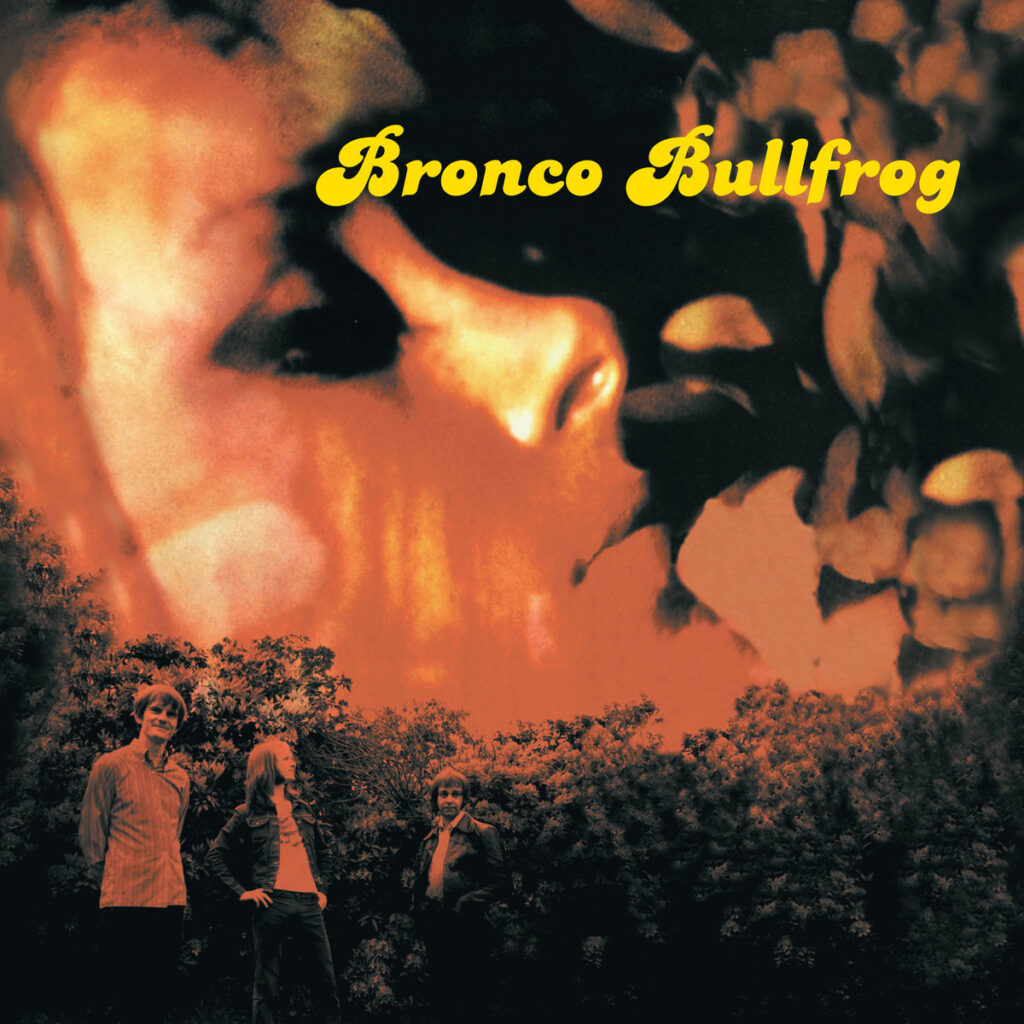
Your debut album, ‘Bronco Bullfrog,’ conjures up images of The Who. How did you manage to capture such a raw, electrifying sound while blending so many influences from 60s-70s pop-psych, power-pop, and beyond?
Louis: We’re all Who obsessives, but we also love all the bands The Who influenced (Cyrus Erie, Powder, etc.). The sound, the racket we made back then, well, it was the backbone where we could hang those gentle harmonies, our quieter side, mandolins, and all that stuff. I don’t know, you kind of play how you play without really thinking, and I guess The Who permeated our psyches at an early age.
Andy: Bands often have their own shorthand or code for sections of songs, breaks, gaps, dynamics, etc. A big one for us was “Who bit.” This could mean numerous things, but we always instinctively knew what to do. We were just another band in a long line that employed the multi-purpose “Who bit”!
On ‘seventhirtyeight,’ you seamlessly meld brilliant songwriting with walls of guitars, sentimental ballads, and studio weirdness. Can you walk us through your creative process for this album? What inspired the eclectic mix of hard-rockers and heartfelt tunes?
Louis: There were a lot of break-ups around the recording of that album, and some of the angst seeped into the recording, both angrily and introspectively. That’s my take on it anyhow.
Andy: That was the most piecemeal period as we had no idea that we’d need to make a second album. It kind of crept up on us, and we had to stitch it together from three or four slightly ragged sessions in a studio in Leicester, during which all three of us had some personal drama going on and the recording engineer had a bit of a breakdown. I remember us swapping instruments quite a lot – whoever had an idea for a guitar line or an organ part or a vocal harmony would quickly work it out and record it. Very few fucks given!
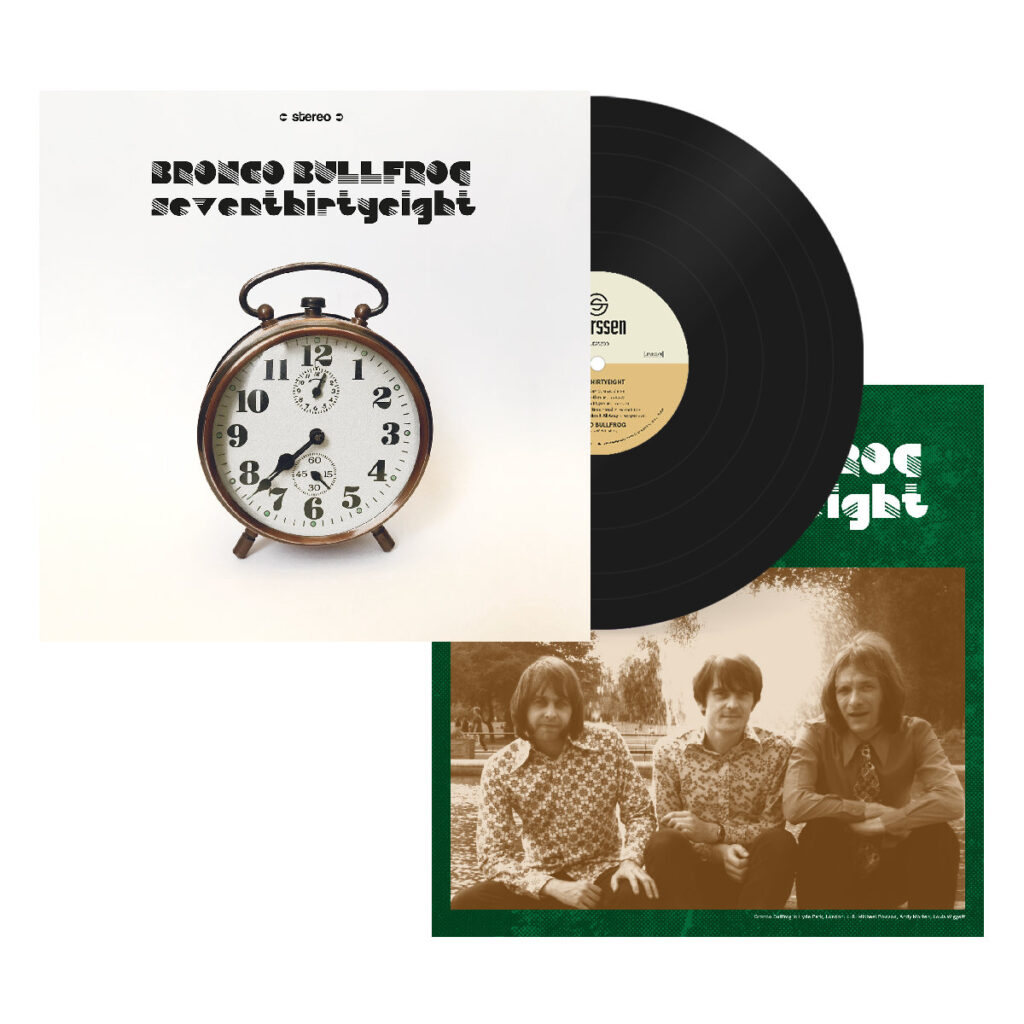
Recording ‘The Sidelong Glances Of A Pigeon Kicker’ at Liam Watson’s Toe Rag Studios must have been a dream for a band so rooted in late 60s/early 70s sounds. How did the vintage equipment and “old school” approach influence your recording process and the overall feel of the album? What are some of the strongest memories from working on ‘The Sidelong Glances Of A Pigeon Kicker’ and ‘Oak Apple Day’?
Louis: I remember it being our usual piecemeal recording method where we could only afford a weekend here, a weekend there, and built the songs up across an extended period. You have to remember that the gear we used on the first album wasn’t that much removed from what Toe Rag could offer; it was still tape, still clunky, limited, etc. However, we worked happily within its confines. I prefer tape, I prefer to have limitations, and the sound is always better.
Andy: I mostly remember the biscuits: Lemon Thins.
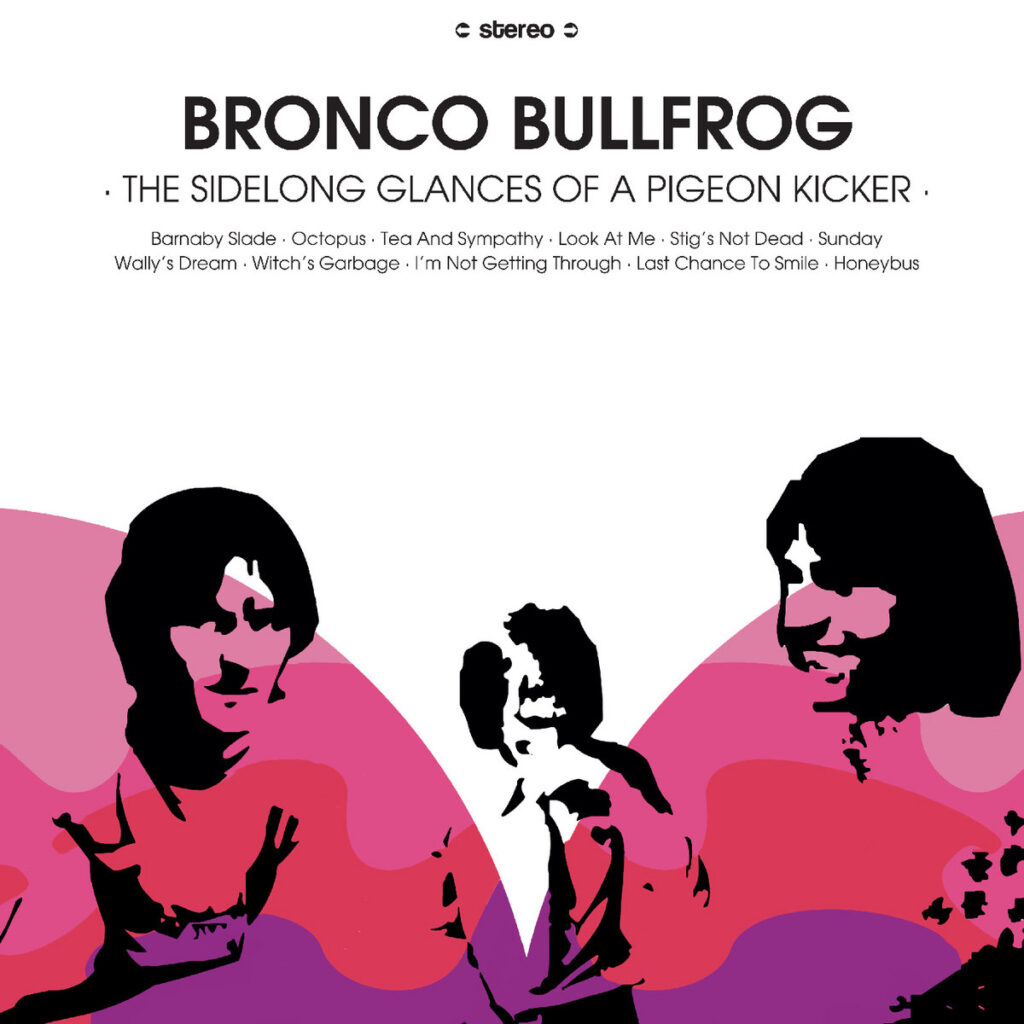
Your final album, ‘Oak Apple Day,’ showcases a stellar combination of 60s-70s influences with a cohesive collection of brilliant pop songs. What was it like working with Joe Foster and Fausto Martín in Spain, and how did their contributions shape the album’s sound?
Louis: Even though we had a producer, I feel we were always a band that knew what sound was needed. We always had a lot of input, directives, suggestions, and the final say. Through no fault of Joe’s (it was another “break-up” album and our last for good reason), the sessions were at times uncomfortable, stressful, and made the process harder work than it really needed to be. Having said that, it’s a good album.
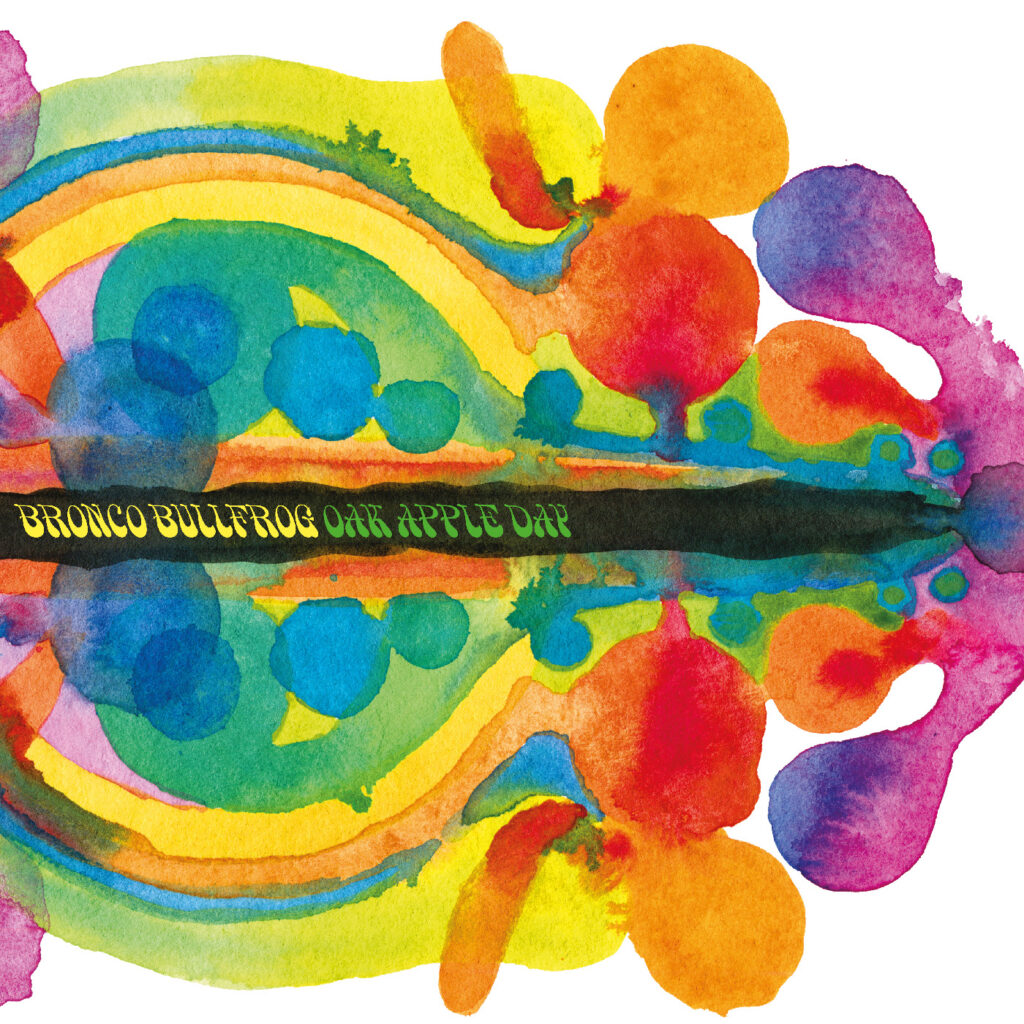
With Guerssen recently reissuing your records, including the much-anticipated vinyl editions, how do you feel about your music reaching a new generation of listeners? What do you hope fans, both old and new, take away from these reissues?
Louis: The new reissues sound great, and it’s an honor to be on Guerssen (who incidentally released the only recordings of Vibraphone, sans Andy, way back in the mid-90s), an astonishing label with one of the best back catalogs (I’m not talking about Vibraphone either). I hope people will give us a listen, I hope they understand what we were trying to do, and I hope the albums influence others to form a band with their mates.
How involved were you with the process, and tell us about the remastered sound? Did you do remastering on all four albums?
Louis: All four have been remastered, and they sound infinitely better. You can hear the bass guitar, for starters, which was always lacking, certainly on the first album anyway.
Is there more unreleased material you would like to have released?
Andy: We weren’t particularly prolific, so there’s only a handful of odds and ends that we didn’t use at the time: a CD single, a few covers, some rough mixes. We started self-recording an album about five years ago, actually. We got 10 or 11 backing tracks down, then discovered the two tape machines we used were running at slightly different speeds and we couldn’t quite match them up. The impetus was lost, and we never really got into cutting the vocals. Some great songs in there though!
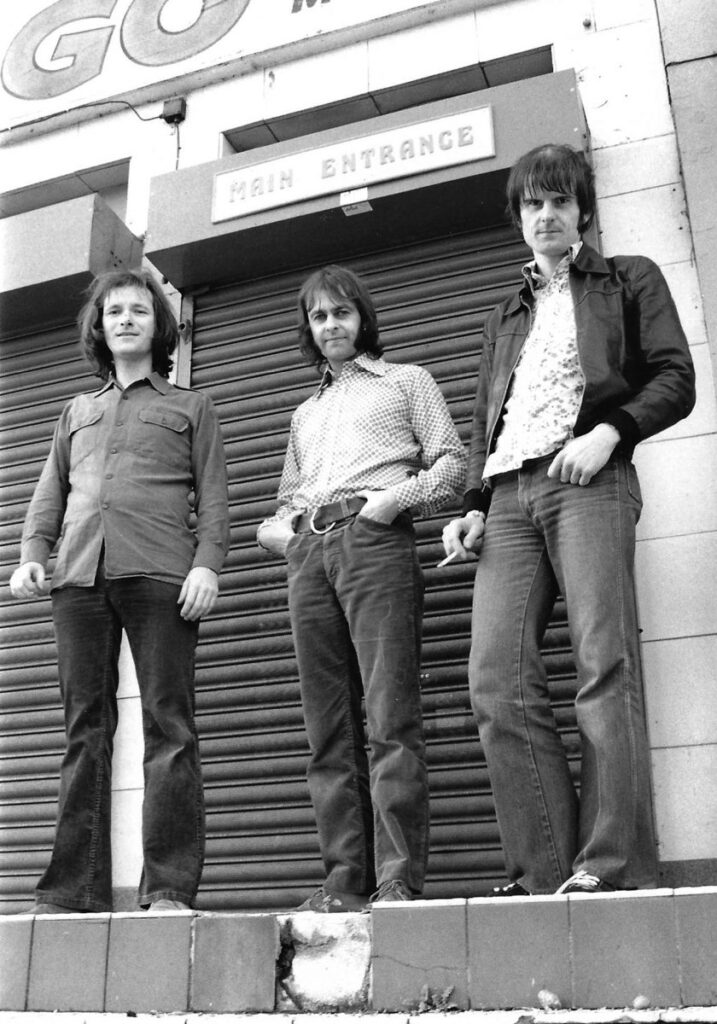
Would love to hear more about The Nerve, a band that was a precursor to Bronco.
Andy: Chris, Adrian, Mike, and I were four lads in neighboring provincial towns who’d been mods, then gone to see The Prisoners and got into the wilder sounds of the ’60s. We started off playing covers of ‘Father’s Name Is Dad,’ ‘Magic Potion,’ and the like. Then I started writing songs, and we recorded some of them. It was the late ’80s/early ’90s, and – as anyone in a “retro” band during that period will tell you – it was very hard to find studios that had even the slightest idea about how to capture a loud live band that had a Hammond organ. Gigs were better – we used to play everywhere and anywhere and always seemed to win over audiences. We got pretty ambitious towards the end, writing and performing songs like we were in The Left Banke or The Merry-Go-Round, which was pretty unusual at the time.
Andy, you were also part of projects like Vibraphone, Little Bare Big Bear, Magic Tractor, and Magpie. Could you tell us about these projects?
Andy: Vibraphone was Louis’s band after The Immediates broke up (I think). Their drummer left or was kicked out, and Louis phoned me up, asked me if I could play with them the following Saturday, dictated the setlist down the phone (all covers at this point, and really good ones too!), and I showed up and did the gig. I did that for a few more years until we had an auto accident in Spain and I couldn’t play drums for a while. LBBB was born from me becoming drinking buddies with Jon, Andy, and Richie from The Nuthins and us all wanting to do this hopped-up take on late ’60s psych-rock, where the acid was replaced by real ale! When I moved to Somerset 20 years ago, I met some good lads from various local bands and we put together Magic Tractor to play ’60s mod, soul, and bubblegum covers in pubs. Just for a laugh, really, but it ended up being a really good, tight band. Magpie was basically the same people playing different instruments, with me out front singing and playing guitar on some songs I’d written. We never really found an audience, and there wasn’t enough love in it, which is a shame as I like the EP we did.
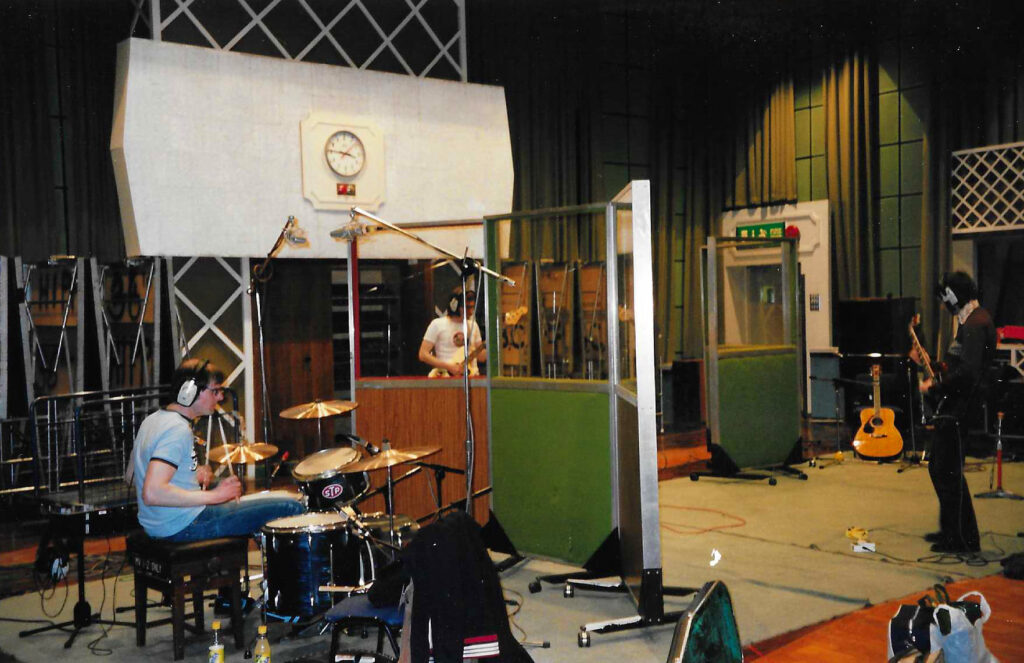
Andy, tell us more about your company Pepperbox and your other work for Cherry Red, Rev-Ola, Tenth Planet/Wooden Hill etc.
Andy: It’s too complex to go into here, but in short, I bluffed my way into doing some work for Joe Foster at Rev-Ola – a liner note here, a design job there. I’d never used desktop publishing (as it was called then) software before; I literally learned on the job. They obviously liked me and my work, as I’ve done stuff for many of the Cherry Red labels now. I don’t remember how I came to the attention of David Wells, who ran Tenth Planet/Wooden Hill and now runs Grapefruit, but it was an honor to be asked to work with him on reissues and compilations of some of my favorite music of all time. Here I am – 20-plus years later – still doing it and loving every moment!
Louis, it would be fantastic to hear about Admiral Sir Cloudesley Shovell and the concept behind it.
Louis: I’ve known Johnny for eons – since I was 16. We formed the Shovell as a covers band initially in 2005, just to make a few quid around the pubs of Hastings, but then we expanded it to writing our own stuff, purloining riffs, etc. It was a similar inception to the Broncos in that it was three friends making a jolly racket and pretending to be like their musical heroes. We’re currently recording our fifth album for Rise Above Records, and we recently played at the Shindig “Happening” night at the Night Owl, Finsbury Park on Friday 2nd August (shameless plug, Jon Mills will be happy).
Louis, you’re also currently part of The Bevis Frond. What is that like for you?
Louis: Ah yes, the band that encapsulates the music of both Bronco Bullfrog and the Shovell. It’s a great band and a lot of fun, and I get to play for two hours a night, playing terrific songs to decent crowds. I love doing it. I’ve known Nick since I was 18 or 19; he lives locally, and both the Shovell and Broncos have supported the Frond in the past. So, when the call came, I felt I was ready for it. My playing style is entirely different from that of Ade Shaw (Frond’s mainstay bass player), but it seems to work. It really is a lot of fun, and that’s the purpose, right?
Let’s end this interview with some of your favorite albums. Have you found something new lately you would like to recommend to our readers?
Louis: Random selection: Aorta (first, self-titled), The Pipe Dream ‘Wanderers/Lovers’, Myrth (S/T), and Hairy Chapter ‘Can’t Get Through.’
Andy: I can’t stop playing The Lemon Twigs’ new album ‘A Dream Is All We Know.’ It’s so ridiculously good – the past and future of guitar pop in one perfect pill! Yesterday I listened to some early ’70s Françoise Hardy albums, this morning I blasted Starry Eyed & Laughing’s first, and now I’m playing a new comp of ’60s stuff from the Decca vaults called Psych! I always go back to this stuff – it’s in my DNA.
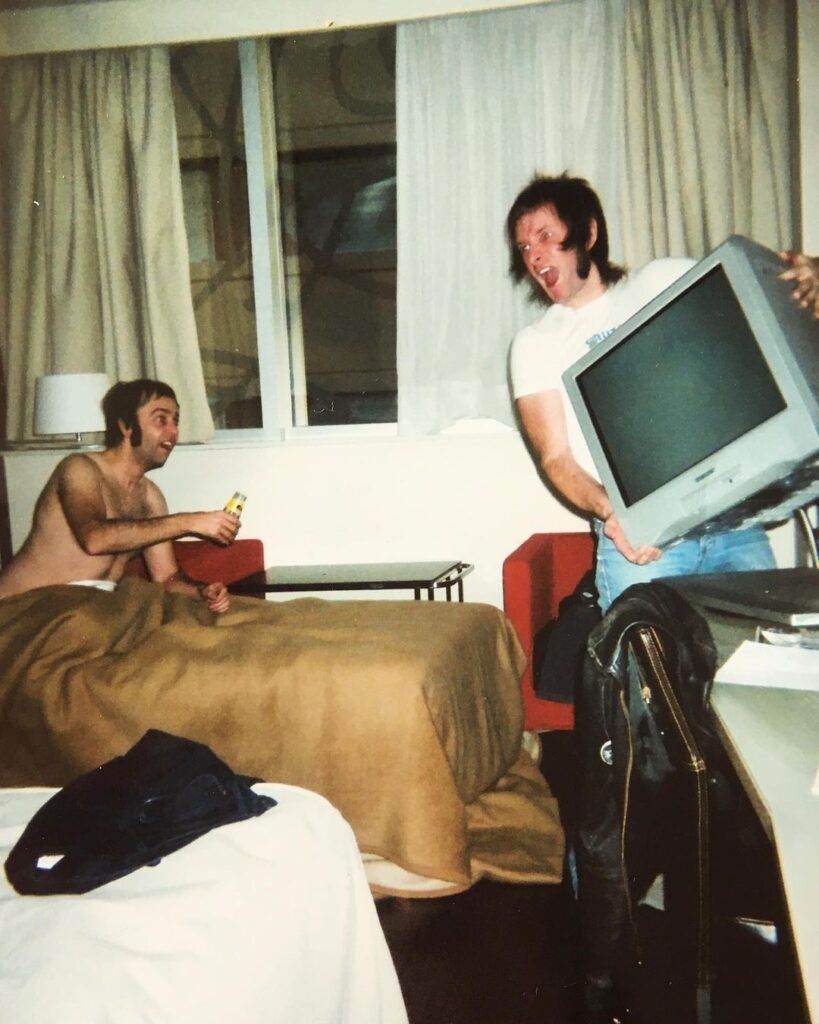
Thank you. The last word is yours.
Louis: No, it’s not; it’s Mike’s. Mike?
Klemen Breznikar
Bronco Bullfrog Facebook / Instagram / Twitter / Bandcamp
Guerssen Official Website / Facebook / Instagram / Twitter / Bandcamp / YouTube

